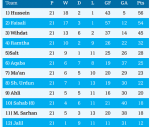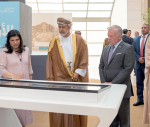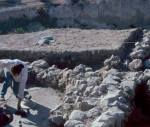You are here
A process slowly evolving
Aug 11,2016 - Last updated at Aug 11,2016
Much is being said about lack of enthusiasm for the forthcoming parliamentary elections.
Of course, we have to wait for the polls to compare; now it is hard to tell, as the candidates have not started their campaigns yet.
If one were to venture a guess, however, based on early indicators, this round is going to be more vibrant than the ones before it, for one thing: the new Elections Law injected some vitality and dynamism into the process.
It is true that many people, including candidates, find some clauses in it difficult to understand. At the same time, many are forging ahead with the dual process of understanding and of forming alliances.
Two points need to be stressed here.
The first has to do with the formation of new alliances.
The most difficult thing in our society is coordinating and networking. At the same time, one of the most visible maladies in our society is factional and isolated political work.
The fact that the new law is forcing candidates to group, regroup and reach out to others across the political divide is extremely positive. And this seems to be a direct outcome of the new law.
Political alliances across the divide are, after all, part and parcel of democracy.
The second is that the mere fact of having a new law shows that our political life is in fact developmental and dynamic, not static and rigid.
Reform, in other words, is happening, but happening at a slow pace.
As for the predicted voter apathy, again, it is too early to tell.
However, one should not forget that people have been generally disappointed with the performance of several previous parliaments because of what these parliaments did and did not do and to people’s own exaggerated or even false expectations of parliaments.
One thing already noticeable, however, is that many people and NGOs interested in changing laws for the sake of some specific social issues they care about are also forming groups and alliances, not in order to run for parliamentary elections, but to put in place pressure groups to work with candidates.
This is very positive.
In a nutshell, looking at the matter here is precisely like looking at the glass: is it half full or half empty?
Many of us see it half full, and many believe that democracy is a process and it takes time for people to make the best of it.
Judging from our parliamentary tradition since 1989 (very, very recent compared to full-fledged parliamentary traditions in established democracies), we see a very good process at work.
This process is three folded: candidates and parliamentarians learning and adjusting better to their roles; social activists and NGOs growing in number and maturity; the political system is slowly adapting to people’s demands and expectations.
This is by no means great, but it is not bad either. Processes take time to fully unfold.













